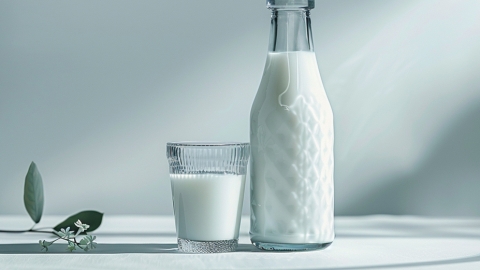What should not be consumed with sugar apple (Annona squamosa)?
Generally, sugar apples should not be consumed with foods such as milk, eggs, cheese, crab, bananas, or medications such as metformin hydrochloride tablets, warfarin sodium tablets, phenytoin sodium tablets, cyclosporine soft capsules, and nitroglycerin tablets. Detailed explanations are as follows:

I. Foods
1. Milk
Sugar apples contain certain organic acids that may combine with proteins in milk to form substances that are difficult to digest, thereby affecting the body's absorption and utilization of protein.
2. Eggs
Tannins in sugar apples can combine with proteins in eggs to form compounds difficult for the body to absorb. This not only reduces the nutritional value of the food but may also cause gastrointestinal discomfort, bloating, and other issues.
3. Cheese
Sugar apples contain a certain amount of dietary fiber, while cheese has a high fat content. When consumed together, they may interfere with each other's digestion process, leading to gastrointestinal discomfort.
4. Crab
Both crab and sugar apples are high in protein and calories. Additionally, tannic acid in sugar apples can easily react with proteins in crab to produce substances that are difficult for the gastrointestinal tract to absorb, causing stomach discomfort, bloating, abdominal pain, and other symptoms.
5. Bananas
Both sugar apples and bananas are rich in sugars and carbohydrates. Consuming them together may increase the burden on the stomach and easily lead to calorie accumulation, increasing the risk of obesity.
II. Medications
1. Metformin Hydrochloride Tablets
Sugar apples have a high sugar content and may cause fluctuations in blood glucose levels after consumption. Metformin is primarily used to lower blood glucose. If large amounts of sugar apples are consumed while taking this medication, the sugar content in sugar apples may elevate blood glucose levels, counteracting part of the drug's glucose-lowering effects.
2. Warfarin Sodium Tablets
Warfarin sodium tablets are anticoagulant drugs. Sugar apples contain abundant vitamin K, which may competitively inhibit the drug's action and reduce its anticoagulant effect when consumed together.
3. Phenytoin Sodium Tablets
Phenytoin sodium tablets are commonly used to treat grand mal and partial seizures. Components in sugar apples may affect the metabolism of phenytoin sodium in the body, slowing its metabolism and increasing its blood concentration.
4. Cyclosporine Soft Capsules
Cyclosporine soft capsules are immunosuppressive agents. Components in sugar apples may interact with cyclosporine, affecting its absorption in the intestines and reducing its blood concentration, thus failing to achieve effective immunosuppressive effects.
5. Nitroglycerin Tablets
Nitroglycerin tablets are commonly used to treat angina pectoris. Sugar apples contain some bioactive components that may interact with nitroglycerin, affecting its absorption and onset time, thereby preventing the drug from acting promptly.
Although sugar apples are nutritious, excessive consumption may lead to excess calorie intake and elevated blood glucose levels, increasing the risk of chronic diseases such as diabetes.





